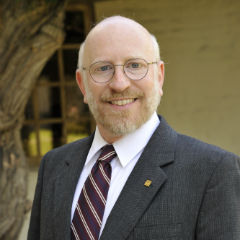
- This event has passed.
Julia Ng, Daoism, and Capitalism: Modern German Jewish Philosophy’s Encounter with China
Thursday, December 8, 2022, 6 – 7:30 p.m.
In the early decades of the 20th century, major figures of modern German-Jewish thought converged upon Daoism as a source of capital-critical alternatives to state power. Ideas from China had been circulating in German-speaking lands since the 18th century of Leibniz and Kant, largely facilitated by German and Dutch Jesuit and colonial networks. By the 1910s and ’20s, translations of philosophical and literary classics and socio-political analyses enabled by a circuit of missionaries, diplomats, and scholar-enthusiasts had inspired Germanophone writers at large to adapt Chinese ideas in their works. Yet the German-Jewish reception was singular and pivotal to the emergence of what would later come to be known as the Frankfurt School of Critical Theory. Building on her recent work, Julia Ng’s lecture focuses on one concept, in particular, that was broadly associated with Daoism—wu wei or ’non-action’—and its transformation by Martin Buber, Franz Kafka, Franz Rozenzweig, and Walter Benjamin into variations of non-participation in the capitalist ethic, non-conformity with the Christian-colonial project, and non-absorption into the racialization of work prevalent in theories of political and economic activity to this day.
Despite burgeoning interest in Daoism’s global reception and critical theory’s continuing relevance for analyzing transnational sociopolitical phenomena, the historical-conceptual links between the two have received no critical attention. Using extensive new archival work to reconstruct early critical theory’s shared network of texts, translators, visitors, and ideas concerning Daoism that issued from a China at the intersection of colonialism, capitalism, and revolution, Ng proposes ways to begin investigating the impact of a concept from the global south on the development of this major movement within modern European philosophy. In doing so, she calls attention to the possibility of reconfiguring critical theory’s resources for a world not organized solely around European paradigms of action and knowledge. Indeed, she believes that the re-instantiation of the questions that Daoist ideas permitted early critical theory to pose speaks with urgency to our current predicaments involving infrastructure-based politics, ecology, and a globalized political economy organized increasingly around an “Asiatic mode of production.”
Members of the Fordham community may attend the event in person at the Lincoln Center campus, in McMahon Hall room 109.
About the Speaker
Julia Ng is a senior lecturer in critical theory and co-director of the Centre for Philosophy and Critical Thought at Goldsmiths, University of London. She is the co-editor and translator of the new critical edition of Walter Benjamin’s Toward the Critique of Violence (2021), as well as of Werner Hamacher’s Two Studies of Friedrich Hölderlin (2020), both of which appeared with Stanford University Press. Besides writing extensively on the links between modern mathematics, political thought, and theories of history and language particularly in the work of Benjamin and Scholem—including a co-edited Modern Language Notes Special Issue on “Walter Benjamin, Gershom Scholem, and the Marburg School” (2012) and articles on Cohen, Meyerson, and Reinach—she is also the author of essays on critical theory more broadly, including on Agamben, Derrida, Descartes, Hölderlin, Kraus, Marx, Nelson, Baudelaire, and Sappho. She is currently working on a project on Daoism and capitalism while a research fellow at the Center for Jewish History and Fordham University.



